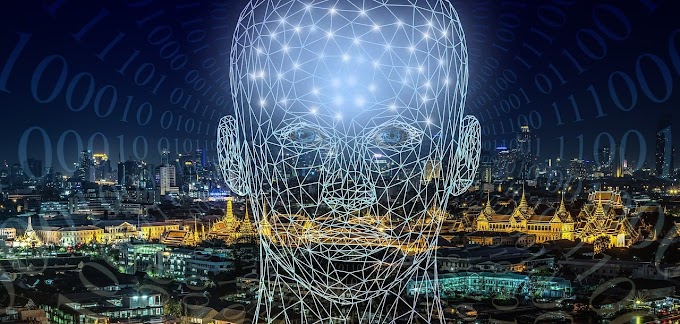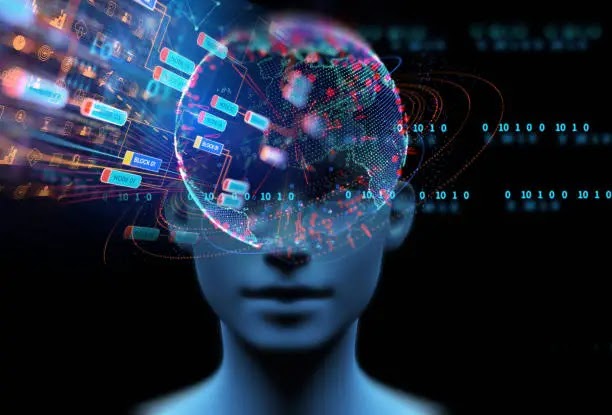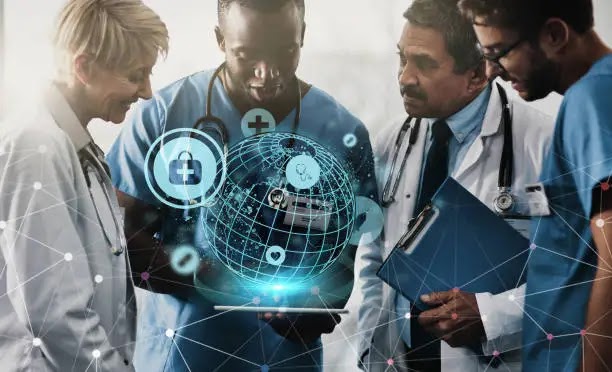AI to the Future: Here are the Top 10 Ways AI will Alter the World in 2023
Introduction
Artificial Intelligence (AI) has emerged as a transformative technology with the potential to revolutionize various fields. It refers to the simulation of human intelligence in machines that are programmed to perform tasks that would typically require human intelligence. As AI continues to advance, its impact on different sectors becomes increasingly significant.
Advancements in Healthcare
AI has the potential to revolutionize the healthcare industry in numerous ways:
AI-driven personalized medicine
With AI, healthcare professionals can integrate patient data, genetic information, and machine learning algorithms to develop personalized treatment plans. This approach allows for more accurate diagnoses, optimized medication dosage, and tailored therapies based on an individual's genetic makeup.
Improved disease diagnosis and prediction through AI
By analyzing vast amounts of patient data, AI algorithms can identify patterns and markers that contribute to early disease detection and prediction. This can lead to more proactive interventions, increased treatment success rates, and improved overall patient outcomes.
Robotics and AI integration in surgery
AI-powered robots can assist surgeons by providing real-time feedback, enhanced precision, and improved surgical navigation. These advancements can lead to safer procedures, reduced recovery times, and better patient outcomes.
Revolutionizing Transportation and Mobility
AI is set to transform the way we commute and travel:
Self-driving cars and AI-powered transportation
AI algorithms can enable autonomous vehicles to navigate roads safely, reducing human error and improving overall transportation efficiency. This technology has the potential to reduce accidents, traffic congestion, and commute times.
AI-based traffic management systems
By leveraging real-time data and predictive analytics, AI can optimize traffic flow, mitigate congestion, and improve transportation infrastructure planning. This can enhance the overall efficiency and sustainability of our transportation networks.
Enhancing public transportation with AI
AI can improve public transportation services by optimizing route planning, predicting demand patterns, and enhancing passenger experiences through personalized recommendations and tailored services.
AI's Impact on Education
AI has the capacity to revolutionize educational experiences:
Personalized learning experiences with AI
By utilizing AI-powered algorithms, educational institutions can tailor learning experiences to each student's unique needs, abilities, and preferences. This can optimize knowledge retention, foster engagement, and promote individualized growth.
AI-powered virtual tutors and digital assistants
Virtual tutors and digital assistants powered by AI can provide personalized guidance, answer questions, and offer support to students. These resources can enhance accessibility, address individual learning gaps, and promote self-directed learning.
Adaptive testing and evaluation methods using AI
AI algorithms can adapt and customize tests and evaluations based on an individual's learning progress and areas of expertise. This approach ensures fair assessments, identifies knowledge gaps, and facilitates targeted interventions.
Transforming Agriculture and Food Production
AI holds great potential in revolutionizing agricultural practices:
Precision farming with AI and data analytics
By leveraging AI algorithms and data analytics, farmers can make informed decisions regarding irrigation, fertilization, and pest control. This precision farming approach optimizes resource utilization, reduces environmental impact, and enhances crop productivity.
AI-driven crop monitoring and management techniques
AI systems can analyze satellite imagery, sensor data, and weather patterns to optimize crop monitoring and management. These technologies facilitate early detection of diseases, crop health assessment, and yield prediction.
Automated harvesting and agricultural robotics
AI-powered robots and automated machinery can streamline labor-intensive tasks such as harvesting, planting, and weeding. This automation increases efficiency, reduces labor costs, and minimizes the dependency on human intervention.
AI in Finance and Banking
AI has the potential to revolutionize the financial sector:
AI-driven fraud detection and prevention
By analyzing large volumes of financial data, AI algorithms can identify patterns indicative of fraudulent activities. This technology enhances security measures, minimizes financial losses, and protects customers from potential fraud.
Intelligent chatbots and virtual financial advisors
AI-powered chatbots and virtual financial advisors can provide personalized financial guidance, answer customer queries, and assist with financial planning. These tools improve customer experiences and increase accessibility to financial services.
Risk assessment and algorithmic trading with AI
AI algorithms can analyze market trends, predict price fluctuations, and automate trading decisions. This approach enables more accurate risk assessments, optimized portfolio management, and increased profitability for financial institutions.
Redefining Customer Service and Sales
AI is transforming customer interactions and sales strategies:
Chatbot integration and AI-powered customer support
AI-powered chatbots can provide real-time customer assistance, handle inquiries, and offer personalized recommendations. This technology enhances customer service efficiency, reduces response times, and improves overall satisfaction.
Personalized recommendations and tailored marketing
AI algorithms can analyze customer data, preferences, and behaviors to provide personalized product recommendations and targeted marketing strategies. This approach improves customer engagement, increases conversion rates, and fosters brand loyalty.
AI-driven sales forecasting and demand prediction
By analyzing market trends and customer data, AI algorithms can forecast demand patterns, optimize inventory management, and facilitate data-driven sales strategies. This technology improves sales forecasting accuracy and helps businesses optimize their operations.
AI's Role in Enhancing Cybersecurity
AI plays a crucial role in strengthening cybersecurity measures:
AI-powered threat detection and proactive defense
AI algorithms can continuously monitor network traffic, identify suspicious activities, and detect potential cybersecurity threats in real-time. This proactive approach enhances threat prevention, minimizes vulnerabilities, and safeguards digital assets.
Behavioral biometrics and AI in authentication systems
AI-powered authentication systems can analyze user behavior, biometric data, and contextual information to enhance identity verification processes. These technologies provide an additional layer of security, mitigating the risk of unauthorized access.
Safeguarding critical infrastructure with AI technologies
AI algorithms can monitor critical infrastructure systems, such as power grids and healthcare facilities, to detect anomalies, predict failures, and prevent potential disruptions. These advancements enhance the reliability and resilience of essential services.
AI in Environmental Sustainability
AI contributes to environmental conservation and sustainability efforts:
AI-powered conservation and wildlife monitoring
By analyzing satellite imagery and sensor data, AI algorithms can track wildlife populations, detect illegal activities, and support conservation efforts. This technology enhances biodiversity monitoring, habitat preservation, and environmental sustainability.
Climate change analysis and prediction with AI
AI algorithms can analyze climate data, model complex ecosystem interactions, and facilitate accurate climate change predictions. This information improves climate change mitigation strategies, adaptation planning, and policy development.
Optimizing energy consumption through AI algorithms
AI algorithms can optimize energy consumption by analyzing data from smart grids and building management systems. This technology identifies energy-saving opportunities, enhances energy efficiency, and reduces carbon footprints.
AI's Influence on Entertainment and Media
AI is reshaping the entertainment and media landscape:
AI-generated content creation and automation
AI algorithms can generate content, such as articles, music, and artwork, that closely replicates human creativity. This automation streamlines content creation processes, enhances productivity, and provides new avenues for artistic expression.
Virtual reality (VR) and augmented reality (AR) experiences
AI technologies can enhance VR and AR experiences by providing realistic interactions, immersive environments, and intelligent simulations. These advancements redefine entertainment experiences, enabling users to explore new realities and engage with interactive content.
Summary and Future Implications
In 2023, AI is set to alter the world in significant ways. From personalized medicine and transportation advancements to education, agriculture, and finance, AI's influence is far-reaching. However, the adoption of AI also raises potential challenges and ethical considerations that need to be carefully addressed as the technology continues to evolve. As we look ahead, the coming years hold the promise of further advancements and breakthroughs in AI, transforming numerous industries and shaping our future.
Frequently Asked Questions (FAQs)
A. What is Artificial Intelligence, and how does it work?
Artificial Intelligence refers to the simulation of human intelligence in machines that are programmed to perform human-like tasks. It works by utilizing algorithms and machine learning techniques to process data, recognize patterns, and make intelligent decisions.
B. Can AI completely replace humans in certain fields?
While AI has the potential to automate specific tasks and processes, complete replacement of humans in certain fields is unlikely. AI technology complements human capabilities and has limitations in terms of creativity, empathy, and complex decision-making.
C. How does AI impact job markets and employment?
AI may lead to job displacement in certain industries, but it also creates new job opportunities and shifts the focus towards roles requiring human creativity, critical thinking, and emotional intelligence. Adaptation and reskilling will be crucial for individuals to thrive in the changing job market.
D. What are the potential risks and concerns associated with AI?
Potential risks of AI include privacy breaches, bias in algorithms, job displacement, and potential misuse of AI technologies. Ethical considerations, transparency, and accountability are vital for ensuring responsible AI development and deployment.
E. How can society leverage AI's benefits while addressing ethical issues?
Society can leverage AI's benefits by promoting transparency, accountability, and ethical guidelines in AI development and deployment. Collaboration between stakeholders, ongoing research, and public dialogue are essential for maximizing AI's positive impact while addressing ethical concerns.
(Thanks your valuable time)
See more About Artificial Intelligence
The Future of Telemedicine in AI(A Path to Revolutionizing Healthcare)
How AI is Revolutionizing Mental Health Care
The future of AI in healthcare (what to expect in the next 5-10 years)
Navigating the Moral Maze: AI's Impact on Healthcare Ethics
AI-Powered Tools Making Healthcare Accessible and Affordable
How AI is Revolutionizing Healthcare: Transforming Diagnosis and Treatment






